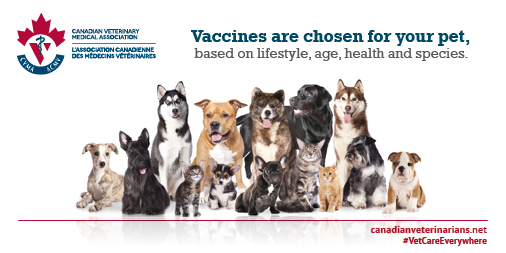
Parvovirus Kills. Is Your Dog Protected?
by Ben Moger-Williams
One of the most deadly viral diseases in dogs, especially puppies, is canine parvovirus, or parvo.
Parvo is highly contagious and is passed to other dogs through feces. It is resistant to temperature and weather changes (freezing actually protects the virus), so it can survive in the environment and on objects — shoes (or paws), grass, dog bedding and kennels, leashes, and even people — for a long time
Dogs are often exposed to parvo at dog parks or other places where dogs congregate. Unnoticeable, trace amounts of feces carrying the virus can be brought into your home by your dog, other pets, and people, as well as on your dog’s tennis ball or Frisbee. Your pup can become infected by chewing on, licking, or eating a contaminated object.
Only 20% of infected dogs develop the disease, but the consequences can be swift and dire. If your pet has any of the following symptoms, contact your veterinarian right away:
- Vomiting
- Severe, bloody diarrhea
- Depression or lethargy
- Loss of appetite
Vomiting and diarrhea can quickly lead to dehydration, and puppies especially have a hard time surviving. According to the American Veterinary Medical Association, parvovirus deaths usually occur 48 to 72 hours after symptoms first appear.
Because parvo is so contagious and can be fatal, if your dog is infected, she will probably be hospitalized and will need to be isolated from other animals. Treatment focuses on controlling vomiting and diarrhea and administering intravenous fluids to keep the pet hydrated. Some dogs also need plasma or blood transfusions. The treatment can be very hard on the dog and there is no guarantee of success.
Don’t Panic, Vaccinate
If your pet is properly vaccinated, there is usually no need for worry.
The American Animal Hospital Association recommends that puppies receive three doses of the vaccine between 6 and 16 weeks of age. Your dog will need a booster one year later and then once every three years after that. Unvaccinated dogs older than 16 weeks should receive two doses of the vaccine three or four weeks apart.
Things You Need to Know About Parvo
- Early vaccination and regular boosters are essential. Make sure a veterinarian performs the exam and vaccination. If you rely on a breeder or “papers” (which can be inaccurate), ask for verification that the work was performed by a veterinarian.
- If your puppy is lethargic or vomiting, eats less than normal, or stops eating altogether, call your veterinarian immediately. The sooner treatment is started, the better the outcome. However, treatment can be effective even if puppies have been sick for several days.
- If you think you have come into contact with the virus, clean your shoes and, if possible, the area where there was fecal matter, with a mixture of bleach and water (½ cup bleach to 1 gallon water).
Provided by Craig Datz, DVM, University of Missouri, College of Veterinary Medicine
© 2009 American Animal Hospital Association. All rights reserved.
